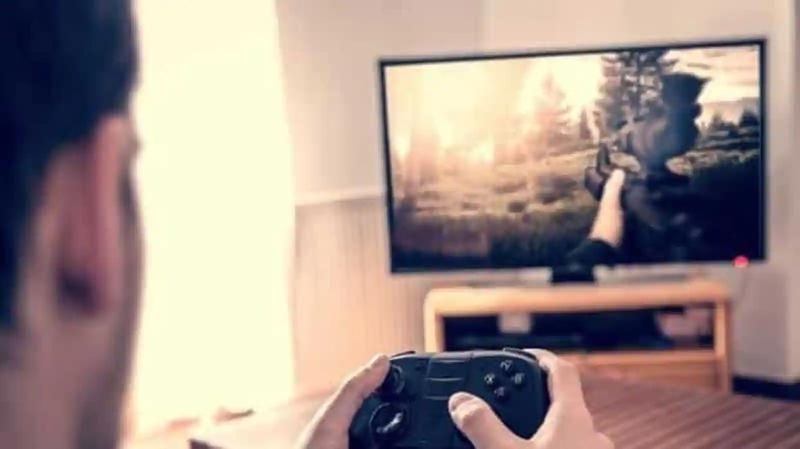There are, of course, caveats.
A recent review of more than a decade’s worth of gaming studies found that adolescent and young adult gamers outperformed nongamers in a number of cognitive functions. They were better able to switch between visual tasks, divide their attention between different moving objects and remember the location of hidden objects.
Some studies also found gamers to have a higher volume of gray matter, the outer layer of the brain that processes information.
Other screen habits, including watching short, fast-paced videos such as those on TikTok, have been linked to shortened attention spans, and toggling between devices and apps has been proven to cause bottlenecks in the brain. Gaming is in a separate category of digital usage that’s been shown over many years to confer numerous brain benefits, researchers say. However, the advantages vanish when the gaming is excessive.
“The positive results have all been seen in people who have a healthy relationship with gaming," said Mona Moisala, a psychologist in Finland who helped conduct the literature review.
The challenge, of course, is knowing how much gaming is too much. (More on that below.)
The review, published last month in the journal European Psychologist, excluded studies involving people who showed signs of internet gaming disorder, defined by the World Health Organization as a year or more of consistently giving priority to gaming over other activities despite negative consequences. Researchers found that players with gaming disorder perform worse on cognitive tasks and have more mental-health problems than other teens.
MORE FROM THIS SECTIONSee All Premium PremiumHere's why people with lung disorder face risk of sever ...
Premium PremiumDo aliens exist? US Congress dives into rise in UFOs in ...
Premium PremiumBone marrow transplant units to be set up at govt hospitals
Premium PremiumUK logs 4 new Monkeypox cases. All you need to know abo ...
No zombies

More good news: All types of videogames can be beneficial, say researchers.
Dr. Moisala, along with other colleagues in Finland, conducted a study on gaming in 2017 and found that the more often young people played—whether shooter games such as “Call of Duty" or racing games such as “Mario Kart"—the better they performed on working-memory tests. (This is the part of short-term memory that allows people to hold information temporarily, like a computer’s RAM.)
Unlike many studies, this one didn’t compare avid gamers with nongamers, nor did it include any “heavy" gamers, who play for several hours a day. Dr. Moisala and her colleagues studied teens and young adults they considered moderate gamers, meaning they reported playing on a weekly or monthly basis, so that the results could apply to a general population of gamers.
The 167 participants, who ranged in age from 13 to 24, were shown or told letters through headphones while lying in an MRI machine. They were asked to match or find letters in a test with increasing difficulty levels.
The most demanding level involved asking if a letter they were shown or told matched one they had seen or heard two sequences before. The participants who had reported spending the most time playing videogames made fewer errors on the tests and had faster response times. They also displayed greater activity increases in brain regions associated with working memory as the task became more difficult.
Dr. Moisala cautions that the cognitive benefits of gaming haven’t been proven to result in teens doing better at school or, say, becoming better drivers thanks to “Mario Kart."
“Parents shouldn’t think their kids should go out and start playing videogames to get a cognitive advantage, if they aren’t already," Dr. Moisala said. “But parents also shouldn’t worry about gaming frying kids’ brains or making them zombies, because that’s not true."
What to look for
How to know if your kid’s gaming habit is helpful or if all that time on the console is too much?
There’s no magic number that determines when gaming becomes problematic, researchers say.
“Someone might be a pro gamer and spend eight hours a day gaming, but it’s for work," Dr. Moisala said. “Someone else could play for one hour a day and find it really difficult to relax after."
What matters is whether gaming is interfering with kids’ sleep, physical activity, nutrition or grades, and whether the kids enjoy doing things with friends that don’t involve gaming. (In this column, teenage boys themselves explain how they balance gaming with other activities.)
According to the American Psychiatric Association, signs of a potential gaming disorder include withdrawal symptoms such as anxiety or irritability when gaming is taken away, loss of interest in previously enjoyed activities and deceiving family members about the amount of time they spend gaming.
If kids’ gaming is detracting too much from other activities and they have a hard time cutting back, experts advise seeking out a general therapist rather than a gaming-addiction specialist, to assess whether they’re using games to cope with other problems.
—For more Family & Tech columns, advice and answers to your most pressing family-related technology questions, sign up for my weekly newsletter.
TRENDING STORIESSee All Premium




